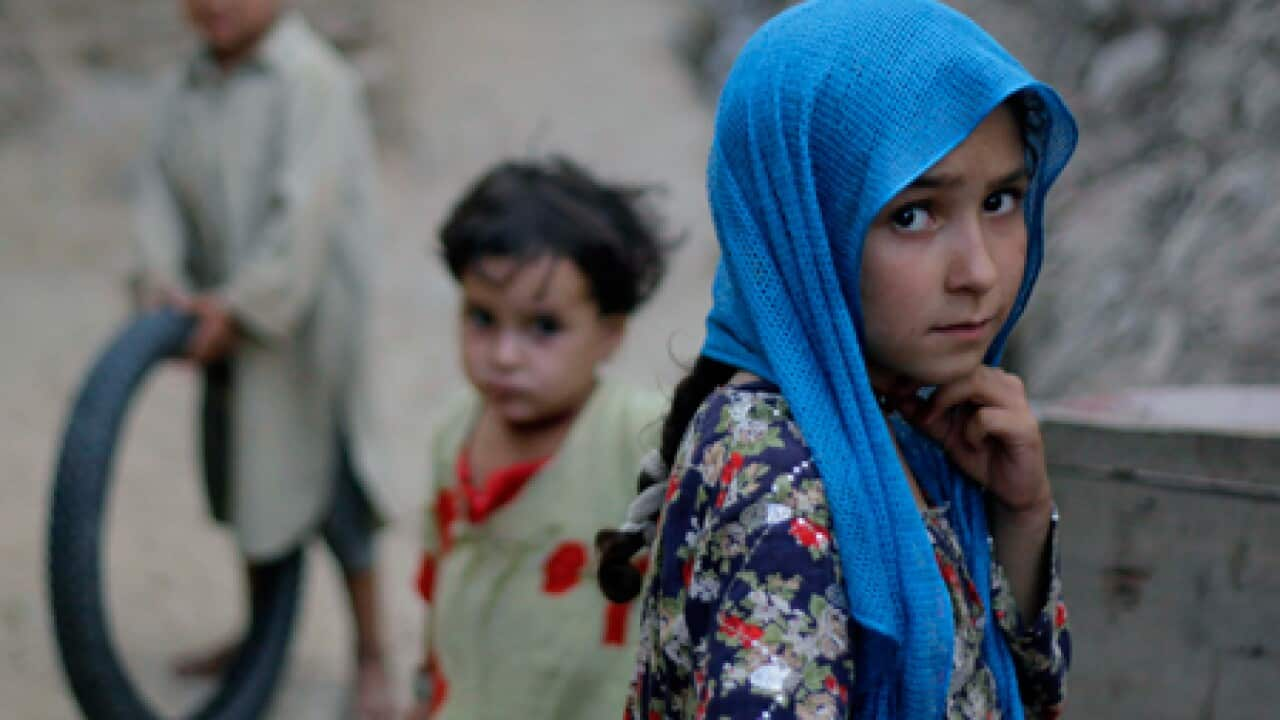While the Australian government grapples with a heated asylum seeker debate at home, it has emerged that developing countries are the ones bearing the brunt of the problem, hosting as many as four-fifths of the world's refugees.
Of the 10.4 million refugees under UNHCR mandate between 2005 and 2009, the largest numbers were being hosted by Pakistan (1,740,711), Iran (1,070,488), Syria (1,054,466), Germany (593,799), Jordan (450,756), the UNHCR's '2009 Global Trends' report reveals.
The five major refugee-hosting countries accounted for almost half (47 per cent) of people deemed refugees by the UNHCR.
They were followed by Kenya (358,928), Chad (338,495), China (300,989), Vietnam (339,300), Eritrea (209,200) and Serbia (195,600).
Australia was ranked 47th, hosting 22,548 refugees between 2005 and 2009 (0.2 per cent of the global total).
Capacities and contributions of host countries
Pakistan hosted the highest number of refugees -- mainly from Afghanistan. It also hosted the most refugees when intakes were compared to national economies, with 745 refugees per 1 USD GDP (PPP) per capita.
The Democratic Republic of the Congo was second with 592 refugees per 1 USD GDP (PPP) per capita, followed by Zimbabwe (527), the Syrian Arab Republic (244), and Kenya (237).
The highest-placed developed country on this measure was Germany at 26th place with 17 refugees per 1 USD GDP (PPP) per capita.
Australia was 68th on a per capita basis and 91st relative to national wealth.
Asylum applications in 2009
South Africa received the highest number of asylum applications in 2009: 222,324.
Other leading countries for asylum applications were the Republic of Congo (95,945), Kenya (87,879), Ethiopia (45,763), France (42,118), Malaysia (40,063), Uganda (36,878), Ecuador (35,514), Yemen (34,471) and Canada (33,970).
The industrialised countries with the largest number of asylum applications in 2009 were the
United States (49,020), France (41,980), Canada (33,250), United Kingdom (29,840),
Germany (27,650) and Sweden (24,190).
Australia was ranked 33rd for total asylum applications with 6206 new applications in 2009.
It was 41st on a per capita basis and 71st relative to national Gross Domestic Product (GDP).
Refugee resettlement
Australia continued to perform creditably in refugee resettlement, with the 11,080 refugees resettled from other nations between 2005 and 2009 making up 9.9 per cent of the global total of 112,442.
The United States alone received 71 per cent of all refugees resettled in 2009 (79,937).
However just 3441 asylum seekers were given refuge in Australia last year, roughly one per cent of the total migration to Australia during 2009.
Refugee countries of origin
Afghan and Iraqi refugees accounted for almost half of all those falling under the UNHCR's responsibility worldwide.
One in four of the world's refugees was from Afghanistan (2.9 million). Afghans were located in 71 different asylum countries.
Iraqis were the second largest refugee group, with 1.8 million having sought refuge primarily in neighbouring countries.
Somalis constituted the third largest group with 678,888 persons, while Congo DRC was the fourth-largest country of origin with 456,000 refugees.
During 2009, 631,905 asylum seekers were recognised as refugees worldwide.
The leading countries for refugee recognition on 2009 were Republic of Congo (94,126), Kenya (76,133), Ethiopia (42,693), Malaysia (35,524), Yemen (33,541), Chad (33,366), Syria (30,696), Uganda (29,558), Sudan (26,496) and Ecuador (26,342).
Below are some figures from the Department of Immigration comparing Australia's asylum seekers intake with the total annual migrant intake.
RELATED: Dept of Immigration's Annual report
Total permanent and temporary visas granted: 4,338,427
Working Holiday and Work and Holiday visas granted: 194,103
Student visas granted: 320,368
Temporary residents visas granted: 37,892
Temporary skilled Migration visas granted, Long Stay, (Subclass 457): 101,280
Family Stream outcome: 56,366
Skill Stream outcome: 114,777
State/Territory or Employer Sponsored visas granted: 59,214
Total Migration Program Outcome: 171,318
*Humanitarian Program visas granted: 13,507
Total number of people taken into immigration detention: 3,977
Refugees who arrived and receive help through the Humanitarian Settlement Strategy: 12,035
Number of people conferred Australian citizenship at ceremonies: 86,981
People approved as Australian citizens by conferral, descent and resumption: 118,196
Revenue generated by visa applications $751.8 million
RELATED: Australia's refugee and Humanitarian Program
*The Humanitarian Program includes asylum applications both from outside Australia and from asylum seekers being held in Australia's detention centres.

